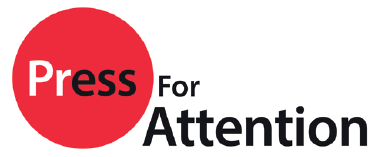Today I thought I’d engage in some navel-gazing and turn the spotlight on us PR folk. Why? Well, essentially, some of the UK’s PR big-wigs have got together and pulled together a manifesto of sorts aimed at “cutting PR spam”.
This sounds good on paper as there is far too much lazy work going on out there and the more of us who actually seek to build relationships with journalists as opposed to our bcc email field the better as far as I’m concerned.
The campaign, named An Inconvenient PR Truth, includes a ‘bill of rights’ – a list of demands on behalf of journalists and bloggers about how they want to be approached by the PR industry.
The first, ‘permission required’ asks that press releases are only sent to recipients who have given express or implied permission. Other rights include that press releases are sent in a timely manner, that PROs read the targeted publications first and that after a recipient receives a press release, a PRO should not follow it with a call.
All of this is great to hear – whether you think the authors are just trying to give themselves a nice little pat on the back for their sterling work and gain a few clients and journalist contacts from this or not is a different matter!
However, decent PRs have been doing this for ages. This isn’t anything new, so, is this really news? The problem is that bad practice is rife, with far too many agencies lazily utlising software and databases and forcing junior staff into PR “Sweat Shops” where they have little grasp of the story, the journalists’ requirements, the clients’ briefs and goals or the whole picture.
Account Directors hand down decrees to Account Managers, Account Managers frantically try and juggle the time they have got, farming menial tasks out to the juniors who then have to find a way to get the story into as many places as possible. Given that brief and the software available – shooting fish in a barrel is always tempting. Send a release to 100 journos and hope it sticks – that way they’ll justify their role to the managers, the managers utilise their staff and the directors report back coverage – however relevant.
However, as the dust settles, media relationships are broken (sometimes forever, sometimes without having even started) and staff are demoralised, having performed menial tasks with zero use of the creative talent that hopefully got them in the door in the first place. These juniors (if they stay) then rise through the agency/their career and repeat this bad practice all over again.
The Press For Attention Prescription
Agencies should seek to empower all staff, however junior, to create relationships with journalists. It is a two-way street, even if some seem to hate PRs with a vengeance and delight in intimidating junior PRs and those of a more nervous disposition. Agencies should also seek input and buy-in from their more junior staff into each campaign, rather than just sending the poor souls over the top with a scatter gun.
If the goal is understood (and that goal isn’t “send 100 and see if they stick”) the media is understood and the approach is right, this journalist v PR battle can cease and relationships can flourish. This is why I love what I do. I call the journalists, I email the journalists and I read their articles. I (hopefully) thus have a far stronger grasp of what they want and the results will follow. If you do use a larger agency, do ask them about their tactics as much as their master strategy and confirm who it is exactly who is going into bat for you every day.
You may be suprised to find it isn’t the person you met at the creds presentation!
